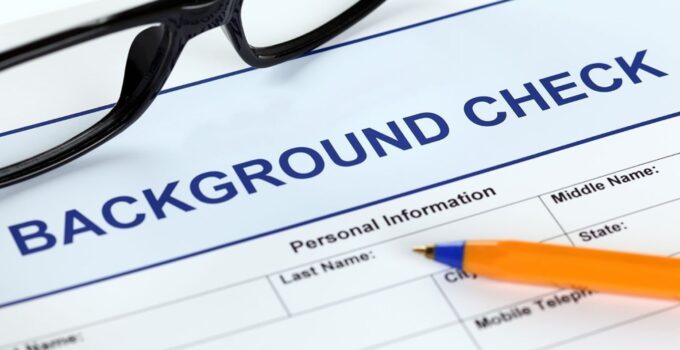In a world of digital data, it seems like anything you want to find online is accessible. For those needing to understand what information is available to the public, look no further than a background check. These reports are known for collecting personal information about an individual, creating a complete PDF file of information.
Who can order a background check?
Most commonly, a background check is ordered by potential employers wanting to screen applicants for a position. The employer will use a third-party company like CheckPeople.com to pull the report and then compare the information against the application. Significant discrepancies will often result in a terminated application.
Landlords will also order background checks to ensure tenants are financially capable of paying for the unit. Landlords may also screen against criminal backgrounds, as well as sex offenders. Although these are the more likely to order a background check, anyone can technically order the report. It’s always a wise idea to purchase your report, especially if you’re looking at changing jobs or moving in the near future. If you’ve started dating someone, having a check can help ensure safety and your wellbeing.
What can people learn about you with a background check?
To better understand what’s included in a background check, here’s a comprehensive list of what people can learn about you when ordering the service.
Personal Identity and Social Security Verification

Source: rightfitplus.com
One of the databases searched in the Department of Homeland Security and Social Security Administration. These databases confirm whether your SSN is valid. They also include whether the SSN has been used in the past and who the number belongs to. Personal identification includes current and previous addresses, which is cross-referenced against anything contained on the application (in the event of employment or landlord).
Your Criminal History will be Shared
The criminal background included in your report will consist of offenses at a local, county, state, or federal level. Depending on the company, results may show pending charges, convictions of misdemeanors, felony convictions, dismissed charges, and acquitted charges. Often, these charges will be reported for seven years. Discovery of criminal charges does not necessarily mean a denied application; most employers must directly connect the criminal charge to the current job. Go to lookupinmate.org for criminal background checking.
Your Credit Report is Included

Source: self.inc
Credit bureaus are third-party companies that compile information about you from a variety of sources. Your credit report is a snapshot of your financial health, including all accounts you currently own. Credit cards, lines of credit, loans, and other sources of debt are included in your credit report. Any recent credit inquiries or applications will be included in the report, naming the creditor that pulled the report in the file.
The card’s limits, current balances, payment history, and missed payments are also included in the credit history. Anyone with an account of past due balances, delinquencies, and insolvencies will also be listed on the credit report.
Social Media Snapshots are Often Included
If you’re active on social media, your report is going to highlight your accounts. This information may include generic account details or sensitive information like posts, photos, or descriptions. Many companies will also scan through dating websites for profile information. This information is cross-referenced against email addresses, names, and phone numbers on file to pull accurate results. As such, it’s always a wise idea to lock down any social media accounts to the maximum security level offered.
Uncovering Your Actual Employment History

Source: westsoundworkforce.com
Background checks provide a snapshot of your history, and this includes any current or past employment. The report almost always contains previous employers in the personalized report. Also included are essential details about your work, including start dates, termination dates, position within the company, and reason for termination. A potential employer wants to validate this information against your resume. They are checking for completeness and accuracy. This report will also highlight any significant gaps in employment, which can raise flags for prospective employers.
Confirming Any Educational Background
Although not included in every report, educational background is often validated when running a background check. The information included in your report may vary but should consist of graduation date, degree or diploma received, and your GPA upon completion. It will also contain the post-secondary school information (name, address, and contact details). The post-secondary school is responsible for updating these details, so it’s possible your educational history isn’t reflecting accurately. If possible, always review the educational information in your report and contact the school if it’s not showing correctly.
Sex Offender Status is Shared

Source: coconuts.co
If you’ve ever committed a crime that has landed you on the sex offender registry, a background check is going to highlight this information. Unfortunately, there is no statute of time limitations for having this shared, meaning it will continue to appear indefinitely. Employers and landlords use this information to determine the eligibility and security of a position. Landlords may refuse a registered sex offender, particularly if the community has a lot of children. Employers that work with vulnerable populations can not have someone on the registry working with their company.
Motor Vehicle Registration and Driver’s Abstract
Remember all of those speeding tickets you received last year? Most background checks include this information in their report. The report also includes vehicles registered in your name, tickets, fines, and fees. Your driver’s license number, issuing date, expiry, and may disclose court-issued judgments in the report as well.
Order Your Background Check to Confirm Details
While these are the major components of most background checks, the easiest way to confirm what is shared in a report is to order your records online. By purchasing your report, you’ll not only be able to uncover what’s being shared, but you’ll also be able to confirm the information as accurate. Sharing misinformation about you is the last thing you need from a background report. These details can greatly influence your career, housing, and personal relationships. The last thing you want is wrong information shared.







